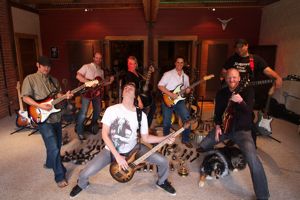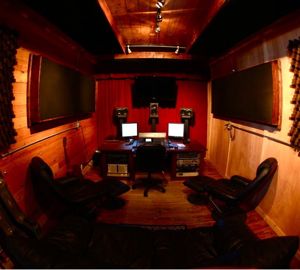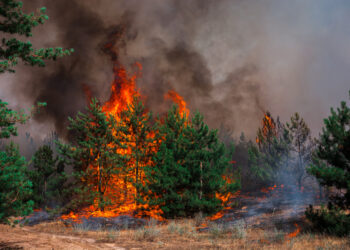By Yogesh Simpson Mountain Outlaw Magazine Contributor
I was standing outside Peach Street Studios on a warm night last
summer when one of the studio’s founders, Cornell “Doc” Wiley,
casually dropped a bomb on me.
Doc is a large and affable man
with a resume that includes a
Grammy for mixing and engineering.
During his 30 years in
the business, he’s worked with a
long list of big-name musicians,
including U2, Prince and David
Lee Roth.
Doc and his partners at Peach
Street Studios are optimistic
about the potential for Bozeman
to be a regional, if not national
hub for people in all aspects of
the music business.
“It feels like Athens, Georgia in
the ‘80s,” Doc said. He recounted
a tale from a spring night
earlier that year when he went
out on the town to hear some
music, starting at a Salvation
Army event and ending at the
Filling Station:
“I saw nine bands in one night,
and none of them sucked! And I
walked to all of those venues.”
Perhaps the inordinate amount of
talent in this little town is due to the
area’s natural beauty.
The team at Peach Street:

“Creative people are attracted to
beauty,” says Jesse Barney, owner of
Resonance Studios. “They’re attracted
to wonderful things to do outside,
and [being] able to go kayaking or rock
climbing or snowboarding.”
“It’s inspiring, and it’s part of the fuel
for doing our art,” Barney said.
There is strong support for artists and
musicians in Southwest Montana, according
to Jeremiah Slovarp, who runs
Jereco Studios out of Peach Street with
Luke Flansburg.
“In talking about the industry as a
whole here, you can’t discount the
infrastructure,” Slovarp said. “You
need to take into account the support
network for the artists in the film and
music industry. There are a lot of film
companies in this town, and they are
doing very well.”
Slovarp pointed out that Bozeman is
also home to Weber mandolins, Gibson
guitars, and HeadRoom headphones,
as well as guys like Bill Payne of Little
Feet, legendary songwriter Kostas, and
Rolling Stone photographer and guitar
pickup maker Larry DiMarzio.
“What we have here are the ingredients,”
Slovarp said. “We have the art,
we have the support, we have the venues,
we have the promoters. We have
all the ingredients to make the recipe
successful, so when it comes out of
the oven it tastes good.”

It’s not just the Peach Street partners who are upbeat
about Bozeman’s musical ingredients. I’ve since brought
up this conversation with others in the business, and
most agree with Slovarp on all counts except the venues.
One glaring niche, in particular, needs to be filled, says
Lucia Stewart, a music promoter, producer and KGLT DJ.
“We need a multifaceted venue with a capacity of 1,200
to 1,800 people that could handle a sit-down, classical
performance or a fantastically decorated fundraiser or
dance party,” Stewart said. “We’re poised here to support
a venue like that, and to exponentially grow the cultural
hub we already have.”
Compared to towns of similar population and size, Bozeman
has a disproportionately small number of venues, said
Tyler Miller, guitarist with the band Tumbledown House.
It’s especially unfortunate, he said, given the enormous
talent here.
But a small city also has advantages. It’s fairly easy to get
paying gigs here, unlike bigger cities.
“In places like L.A. it’s ‘pay to play’. It’s event driven,” Doc
said, meaning bands pay to rent a venue and then have to
sell tickets to make their money back.
Plus, Bozeman venue owners and crowds are more supportive
here than in other parts of the country, Miller
says.
From the concrete stoop on Peach Street it seems like a long
way to the glittery music meccas like Austin. But with so much
talent, infrastructure and motivation in Bozeman and Southwest
Montana, maybe we’re closer than I thought.
Yogesh Simpson is a writer, photographer, graphic designer and musician living in Bozeman. This story was first published in the Winter 2011/12 issue of Mountain Outlaw magazine. Photos courtesy of Peach Street Studios.












